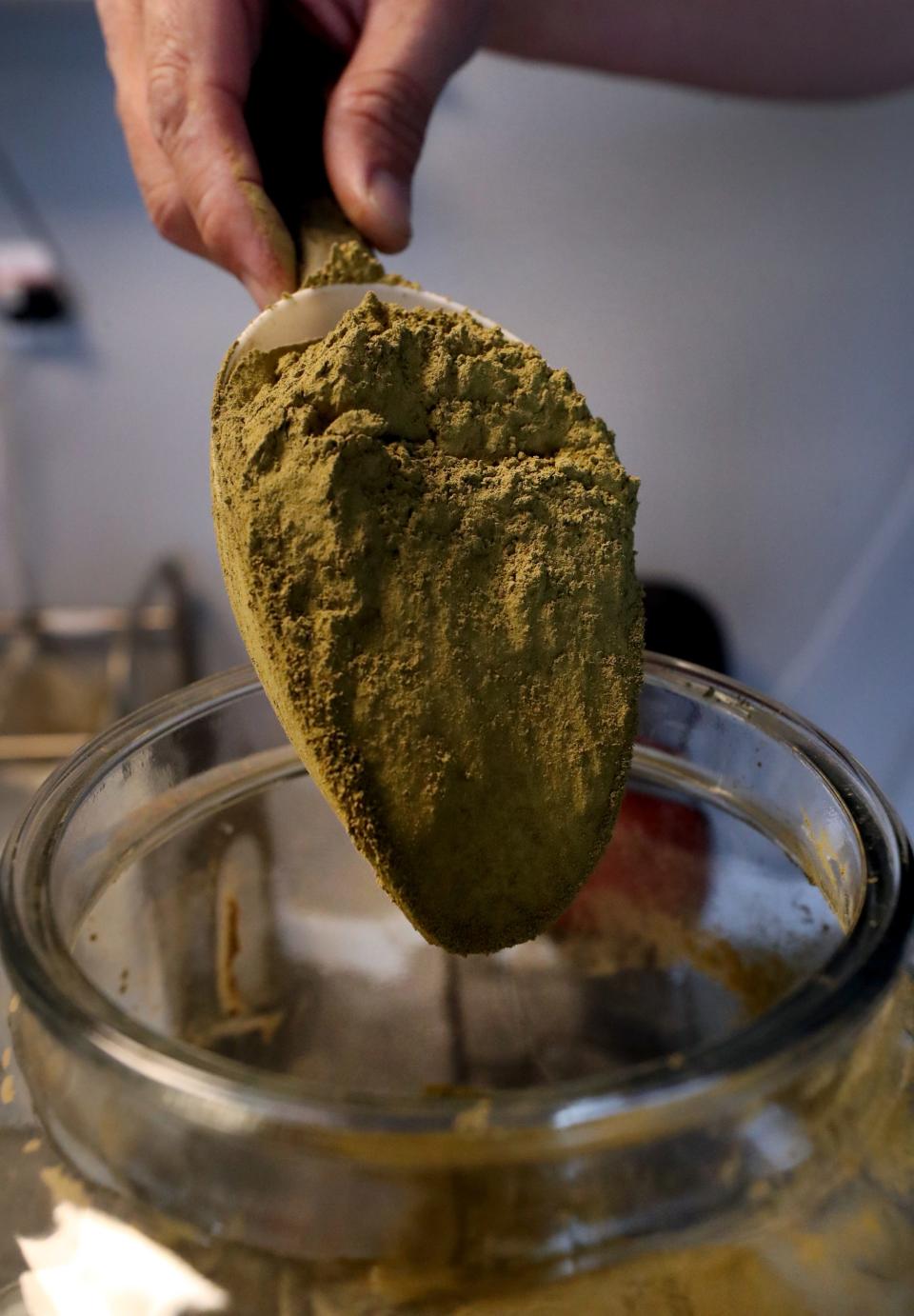What is kratom, and why are Kentucky legislators working to regulate it?
FRANKFORT — Kratom could see greater regulation in Kentucky under a bill that gained unanimous support from a state House committee Thursday.
Kratom is an herbal substance with opioid-like and stimulant effects that is currently legal and often widely accessible at gas stations and convenience stores in the United States.
House Bill 293, sponsored by Rep. Kim Moser, R-Taylor Mill, would put tighter regulations on kratom in the commonwealth without outlawing it entirely.

The bill is a “compromise” because some people want to ban kratom while others believe it can have “positive effects” for conditions such as anxiety, pain and PTSD, Moser said. She called the bill a "consumer protection" measure.
The bill would limit kratom sales to people 21 years and older.
It would also require kratom products to have labels that specify ingredients, a recommended serving size, the name and address of the distributor, and a disclaimer that kratom products are not intended to treat, cure or prevent medical conditions or diseases.
If passed, those who violate the law would face a $500 penalty and a $1,000 penalty for a second or subsequent offense.
Moser said the measure is similar to a law the legislature enacted last year regulating delta-8 in Kentucky.
The Department of Public Health would administer the law, if approved. The bill now requires the full approval of the House of Representatives to move forward.
What is kratom?
Kratom comes from a tropical tree (Mitragyna speciosa) that grows in Southeast Asia and has been used there for at least a century. It is now widely available throughout the United States.
In low doses, the drug can produce a stimulant effect, while in high doses it can cause a sedative effect, according to the U.S. Drug Enforcement Administration.
Kratom is currently legal in the United States, although the DEA lists it as a “drug of concern.”
An estimated 1.7 million people used kratom in the United States in 2021, according to the U.S. Food and Drug Administration. People usually take it in capsule or tablet form.
Debate on kratom's effects
Some people believe kratom can help treat opioid use disorder by replacing opioids or help alleviate withdrawal.
The National Institute on Drug Abuse is studying how kratom impacts opioid use disorder.
But others believe that kratom can cause addiction and death.
The families of people who allegedly died from kratom overdoses have sued the manufacturers and retailers who provided the drugs.
A U.S. Centers for Disease Control and Prevention report from 2019 found kratom was involved in 91 overdose deaths from July 2016 to December 2017. In most of those cases, the person who died was also using fentanyl.
The FDA has not yet evaluated kratom for its efficacy or safety in treating medical conditions. The agency warns people not to use kratom for opioid addiction treatment because it could cause liver toxicity and substance use disorder.
Reach Rebecca Grapevine at rgrapevine@courier-journal.com or follow her on X, formerly known as Twitter, at @RebGrapevine.
This article originally appeared on Louisville Courier Journal: Regulations for herbal drug kratom advance in Kentucky legislature

